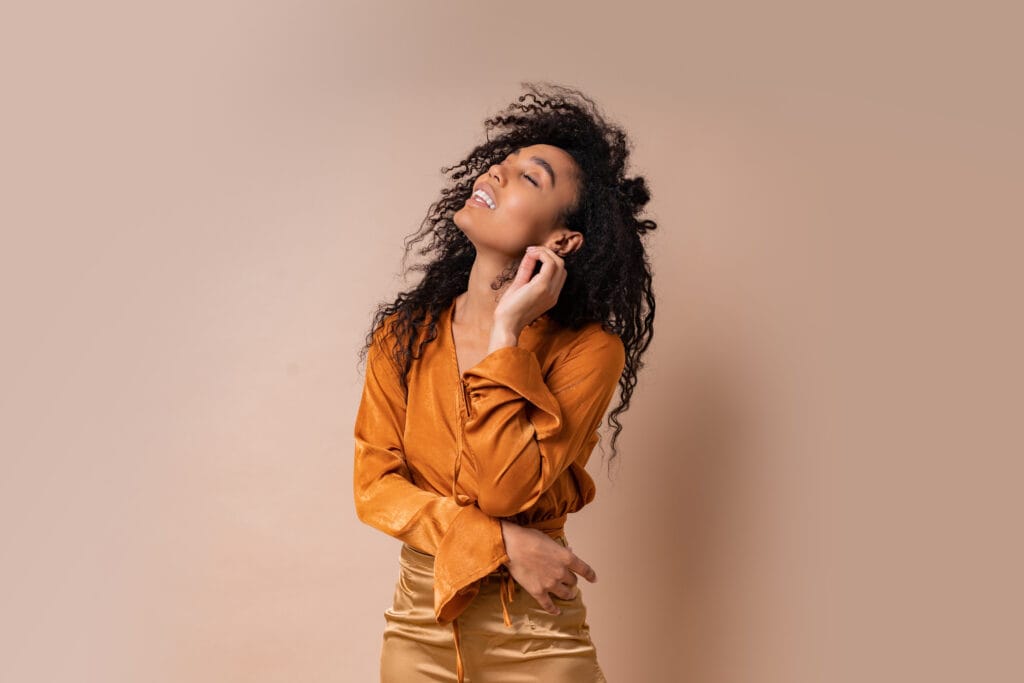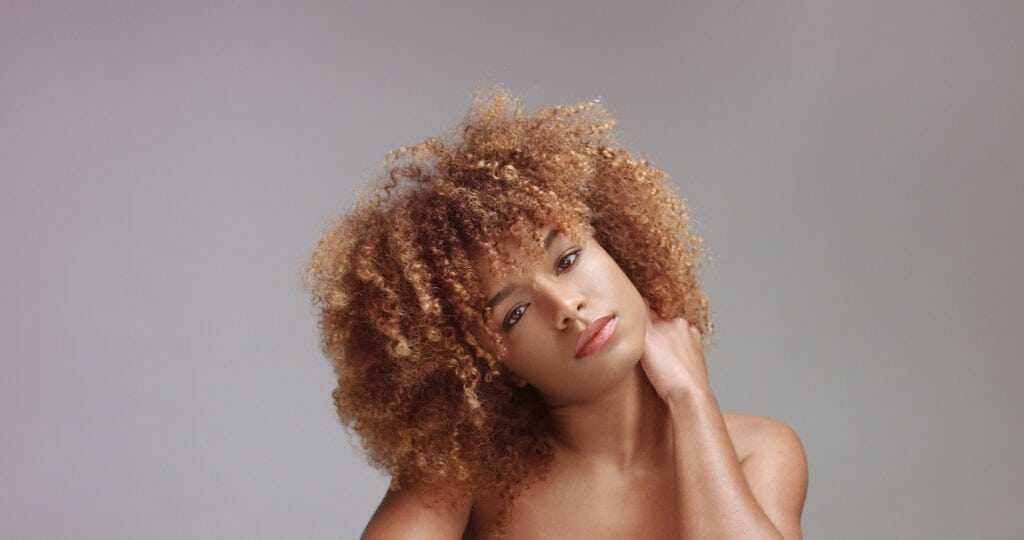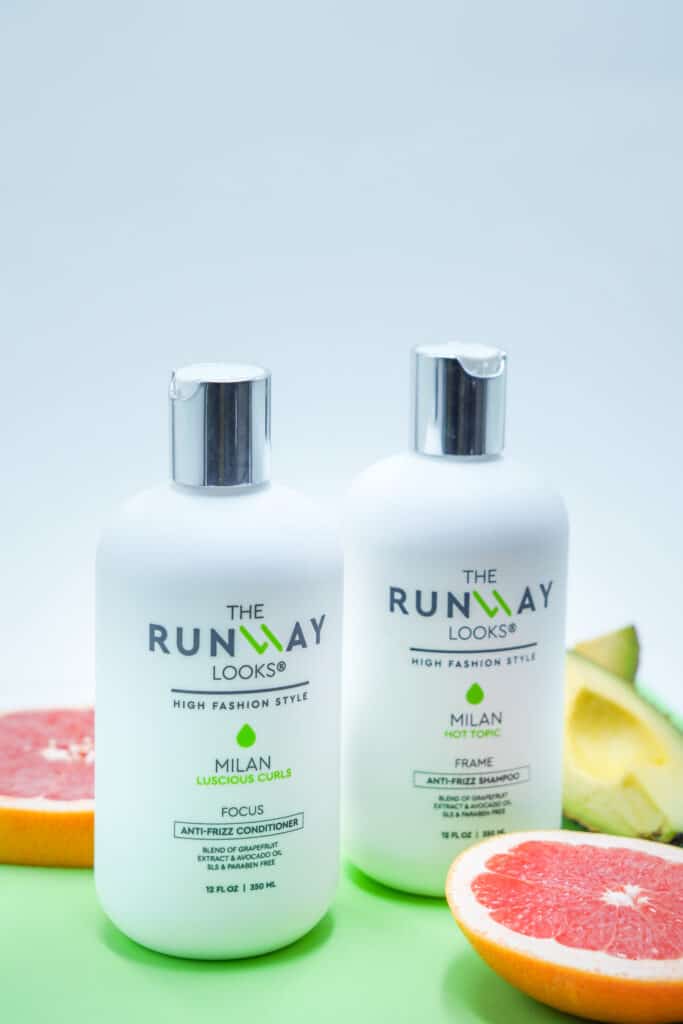The hair follicle shape determines the curl pattern. In this case, an oval follicle shape creates a spiral curl. The sebum produced also affects the hair texture. Sebum is the natural oil that our scalps produce to lubricate and protect the hair. People with curly hair have been found to produce less sebum than those with straight hair.
The structure of the hair also affects its curl pattern. The cortex is the inner layer of the hair that contains the keratin proteins that give hair its strength. The cuticle is the outer layer of the hair that protects the cortex. Curly hair tends to have a thinner cortex and thicker cuticle than straight hair. This difference is because the cortex of curly hair is more tightly coiled than the cortex of straight hair. The cuticle of curly hair also has a less regular structure than the cuticle of straight hair. This irregularity makes the cuticle more likely to catch and hold on to moisture, which can lead to frizz.
How naturally curly hair occurs and what is
considered curly hair?
Naturally, curly hair occurs from genetics, if your parents have curly hair or even just one of them, then there is a chance you will have curly hair as well. There are different types of curly hair, but just because someone has curly hair, does not mean they will have the same type of curls as someone else. The way that you take care of your curly hair is important to maintain IT healthy and prevent damage.
Different types of products are available to help people with curly hair manage their locks, from shampoo and conditioner to styling gels and mask treatments. People with curly hair often have to experiment with different products to find the ones that work best for their hair type.
Curly hair is often classified by its degree of curliness, which can range from loose waves to tight coils. The type of curl is determined by the shape of the follicle, the amount of sebum produced, the structure of the cortex and cuticle, and the length of the hair.
People with curly hair often have to take special care of their locks to keep them healthy and prevent damage. Curly hair is prone to dryness since the sebum produced by the scalp has a harder time traveling down the curly hair shaft. As a result, people with curly hair should always use conditioner.
People with curly hair should also be careful about using heat-styling tools, as these can damage the hair and cause frizz. It is best to air-dry curly hair whenever possible. When using heat-styling tools, it is important to use a heat-protectant product beforehand to help minimize damage.
Curly hair is unique and beautiful, but it does require some special care to keep it looking its best. By using the right products and taking care not to damage the hair, people with curly hair can enjoy their locks for years to come.

Types of curls and how they differ
There are many types of curls, each one is different from the others in many ways. The type of curl is determined by the shape of the follicle, the amount of sebum produced, the structure of the cortex and cuticle, and the length of the hair as mentioned before. It is important to know how to take care of the curls depending on their characteristics to maintain healthy HAIR and prevent damage.
One of the types of curls is the “S” curl. This type of curl has a very defined S shape, so it needs a lot of moisture to stay hydrated because if not, it will result in frizziness. To take care of an “S” curl, it is important to use shampoo and conditioner that has natural oils like shea butter or coconut oil, the main ingredients that our London and Milan shampoos/conditioners have, which are specially made for curly and frizzy hair.
Another type of curl is the loose wave. The loose wave is not as defined as the “S” curl and is usually found in people of Caucasian descent. The loose wave is not as prone to frizziness as the “S” curl, but it still needs hydration. To take care of a loose wave, it is important to use shampoo and conditioner that has natural oils like jojoba oil or argan oil, the main ingredients from our Milan shampoo and conditioner.
The last type of curl is the tight coil. The tight coil is the most defined type of curl and is usually found in people of African American descent. The tight coil is very prone to frizziness and needs a lot of hydration. To take care of a tight coil, it is important to use shampoo and conditioner that has natural oils like grape seed oil or avocado oil, the main ingredients from our London shampoo and conditioner which are besides color treated hair for this type of hair, they give a deep hydration.

Ideal hair care routine for curly hair
The first step for an ideal hair care routine is to know your curly hair type because each type of curl requires different products and treatments. The second step is to find a good shampoo and conditioner for curly hair. Many shampoos and conditioners are specifically made for curly hair and deep hydration. These products usually have natural oils that help hydrate and nourish the hair.

The third step is to use a leave-in conditioner. Leave-in conditioners are very important for curly hair because they help to hydrate and detangle the hair. The fourth step is to use a heat-protectant product before using any heat-styling tools. Heat-styling tools can damage the hair, so it is important to use a heat-protectant product beforehand to help minimize damage. It is very important to once, maybe twice a week, use hair masks for deep conditioning. Check out the London mask which is made specially for very deep hydration, as well as our Milan mask.
There are many types of products available to help people with curly hair manage their locks, from shampoo and conditioner to styling gels and hair masks. People with curly hair often have to experiment with different products to find the ones that work best for their hair type.
Finally, the way you sleep affects the curl definition too. It is recommendable to sleep on a silk pillowcase or use a satin bonnet to prevent hair from frizzing overnight. In addition, it is important not to forget about trimming the ends regularly to avoid split ends. Curly hair is unique and beautiful, but it does require some special care to keep it looking its best. By using the right products and taking care not to damage the hair, people with curly hair can enjoy their locks for years to come